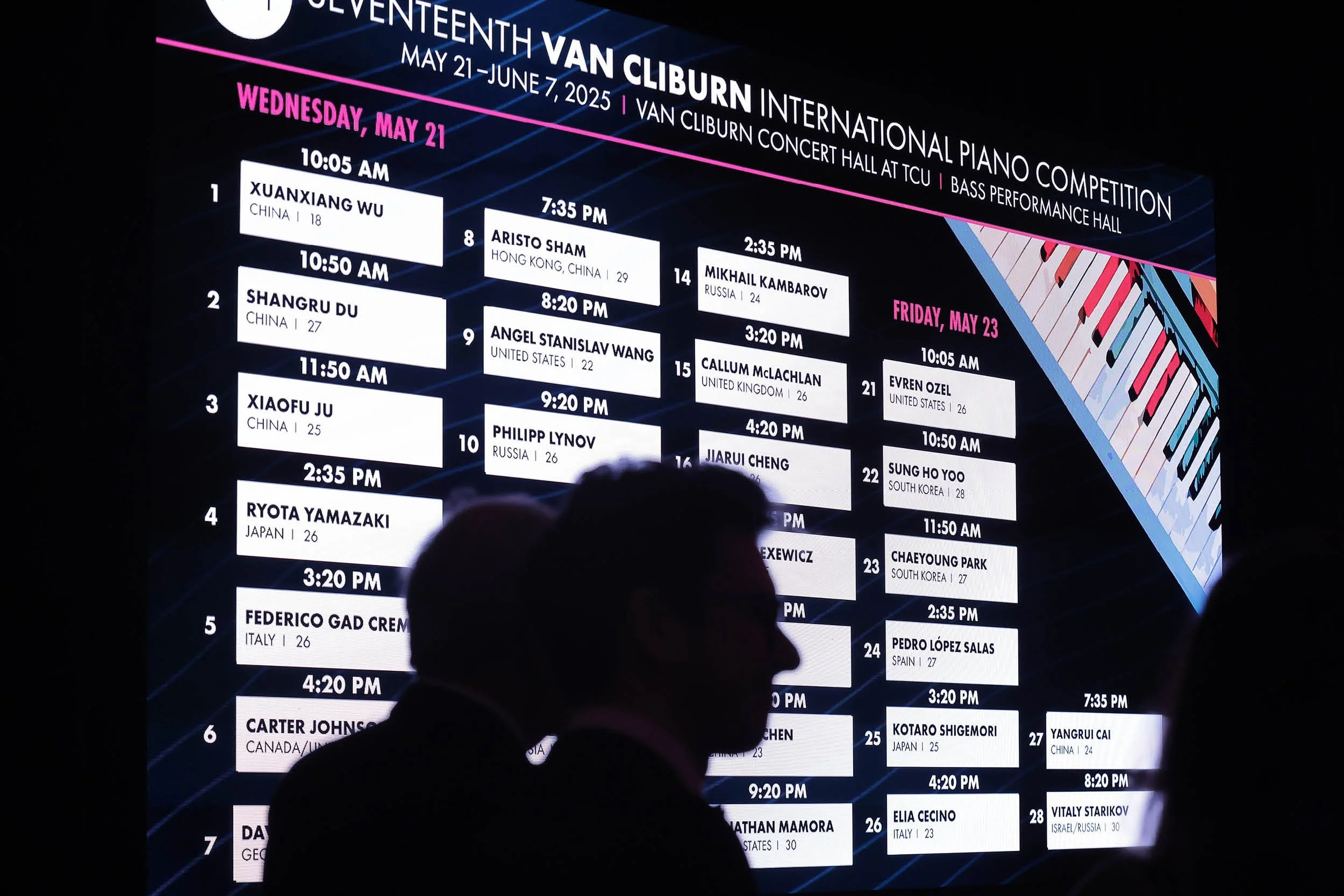Preliminary Recital 1
The order of performance remains the same throughout the competition.
—Wayne Lee Gay
May 21, 2025: It fell to Chinese-born Xuanxiang Wu, at 18 the youngest competitor at the 2025 Cliburn competition, to open the first preliminary round Wednesday morning. Interestingly, Wu also put himself forward by beginning his program with the competition's required commissioned work, Gabriela Montero's "Rachtime"—which most competitors seem to be placing further back in their programs. But Wu proved himself well worthy of the challenge, not only of being first to perform, but first to premiere this entirely new work—with the composer herself present as a member of the competition jury.
Montero's title, obviously a mashup of Rachmaninoff and ragtime, reflects the work's evocation of American popular music in general (not just ragtime) but also the virtuosity and romantic sensibility of Rachmaninoff and other romantic-era composers. For his part, Wu has clearly soaked up plenty of insight into the spirit of American music while studying in New York for the past four years, developing the technical ability to easily manage the Rachmaninoff-esque challenges Montero provided.
Wu continued to impress with his command of Beethoven's Sonata No. 24, Opus 78, a high-spirited, mostly cheerful two-movement work featuring rapid-fire scale work along with hints of the tune "Rule Britannia." Wu showed a different aspect of his musical range with Brahms' brief, elegiac Intermezzo in B-flat Minor, Opus 117, no. 2. He then further certified his mastery of technique with Liszt's murderously difficult Réminiscences de Don Juan, a potpourri of favorite tunes from Mozart's opera Don Giovanni, decorated with technical difficulties presented with breathtaking power by Wu.
Shangru Du, 27, also from China, opened quietly with Tchaikovsky's exquisitely mournful Nocturne in C-sharp minor, weaving the intertwining voices toward a final, lonely closing note. He moved, without pause, to Ravel's hauntingly poetic triptych Gaspard de la nuit, easily navigating the fluid liquidity of the first movement, "Ondine" (an evil water nymph), the haunting depiction of a corpse swinging from a gibbet in "Le gibet," and the nightmarish antics of a goblin in the set's finale, "Scarbo." Du continued with the catalog of technical challenges of Bártók's Three Etudes, which are dominated by dissonant energy. To close, Du left the stage and returned with score in hand for his obligatory performance of Montero's "Rachtime,” performing with ease and insight.
Chinese-born Xiaofu Ju, 25, made a dramatic first impression with early twentieth-century Czech composer Leos Janáček's Sonata 1.X.1905, a work written in 1906 in response to the murder of student demonstrators in Brno in 1905. In this dark work focused on sorrow and anger, Ju demonstrated particularly skillful use of pedal for color and dynamic effect. He followed up with a lean, high-clarity reading of Montero's "Rachtime"; his reading of Ravel's Gaspard de la nuit was not on the same level of technical perfection as Du's performance of the same work an hour earlier, but he came into his own in the dark lyricism of "Le gibet" and the rapid shifts of mood and tone in "Scarbo."
